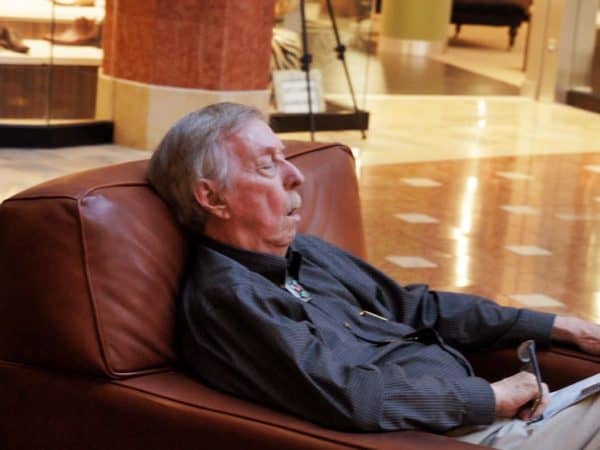
 Why do old people sleep less than the rest of us?
Why do old people sleep less than the rest of us?
A new study has confirmed for the first time in humans the sentinel theory of sleep —the idea that members of a group naturally sleep at different times, so that there’s always someone awake to keep watch over the rest.
The findings suggest that for many of us who endure fitful sleeps, that impulse may have roots in an evolutionary desire to stand guard against potential threats to our families.
An international team of researchers from Canada, the United States and Tanzania studied members of the Hadza tribe, a hunter-gatherer society in northern Tanzania who still live with very little industrially-produced amenities or tools, using bows and arrows for hunting and sticks and axes for digging. Researchers recruited 33 Hadza volunteers who were interviewed on their sleep habits as well as fitted with wrist-worn actigraphs to collect data on bodily movement (similar to activity trackers like the Fitbit).
The results showed that over the 20 days of observation, at least one or more individuals were always awake (99.8 per cent of the time) and that for only 18 minutes during those 20 days were all study participants asleep. The researchers say that while no human populations existing today perfectly mirror the lifestyles of our pre-historic ancestors, the experiment provides the “best current window into our evolution” concerning sleep patterns, says David Samson, assistant professor of anthropology at the University of Toronto, Mississauga, and study co-author, in a statement.
“We investigate the possibility that, under the sentinel hypothesis, phenotypic variation in sleep timing may have been adaptive in ancestral human environments, where night-time wakefulness could have increased group-level vigilance and survivability as a way to counter outside threats from predators, environmental hazards and hostile conspecifics,” say the study’s authors, whose research is published in the journal Proceedings of the Royal Society B.
On average, the Hadza participants went to sleep just after 10 pm and got up at 7 am, but they typically woke up several times throughout the night, either to relieve themselves, to tend to crying babies, or to smoke. Some sleep outliers were recorded, who either went to bed earlier (as early as 8 pm) and woke up earlier or stayed up later (11 pm) and didn’t wake until 8 am.
Interestingly, the data also showed that sleep patterns differed depending on age, with the younger Hadza tending to stay up later than the rest and the elderly not only waking up earlier but often sleeping more poorly.
The study’s authors suggest that the discrepancy may indicate something of the role played by the elderly in prehistoric times in keeping watch over the group and may help explain why sleep disturbance is a common issue as we get older.
“A lot of older people go to doctors complaining that they wake up early and can’t get back to sleep,” says Charlie Nunn, professor of evolutionary anthropology at Duke University in Durham, North Carolina, and study co-author, to the Guardian. “But maybe there’s nothing wrong with them. Maybe some of the medical issues we have today could be explained not as disorders, but as a relic of an evolutionary past in which they were beneficial.”
Leave a Reply
You must be logged in to post a comment.



 Share
Share Tweet
Tweet Share
Share




Comment